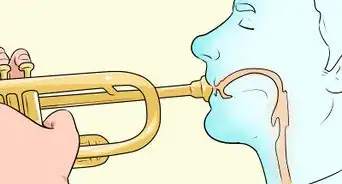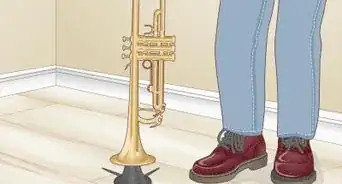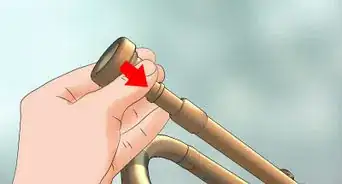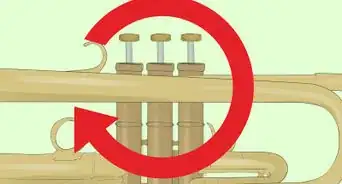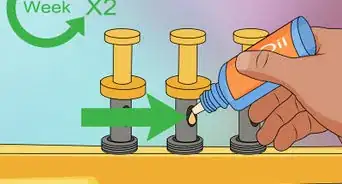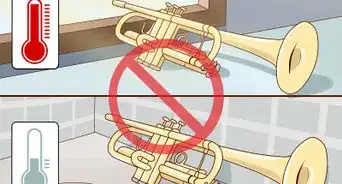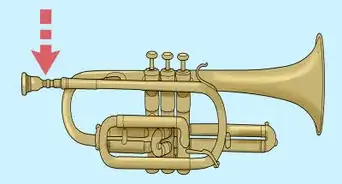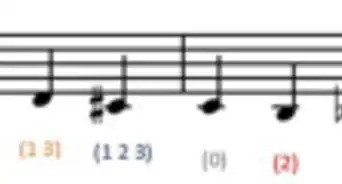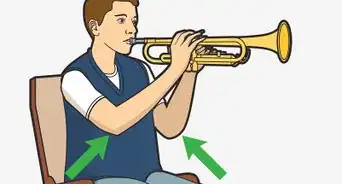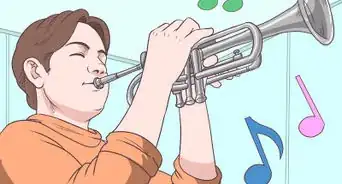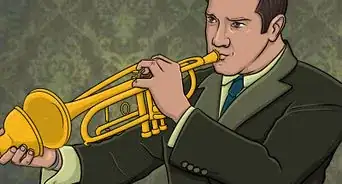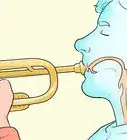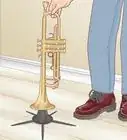X
wikiHow is a “wiki,” similar to Wikipedia, which means that many of our articles are co-written by multiple authors. To create this article, volunteer authors worked to edit and improve it over time.
This article has been viewed 3,860 times.
Learn more...
Scales are an important part of playing any instrument. It helps you play in different pitches and keys. The B major scale is tricky as it involves five sharp notes (F, C, G, D and A). With the help of this article however it should be a piece of cake!
Steps
-
1Play your first note. The first note of a B major scale is obviously, B. Low B is the lowest note playable on a trumpet with the second valve down. Put the second valve down and buzz into the instrument as low as you can.
-
2Press all three valves down to play C#. C# should be higher than B and C natural but lower than D. Buzz that note into the instrument.Advertisement
-
3Play D# next. That note is played with the second and third valves (the two closest to the bell). Again, it should be higher than the previous note. If played too high, D# can sound like high A flat and if played too low, it can sound like low A flat. Play it at the suitable pitch.
-
4Put down the first and second valves for E. E is a semitone higher than D#, which is not much. Seeing as the notes are similar, you don't need to change the shape of your lips, only the fingering of the notes.
-
5Remove your finger from the first valve to play F#. Like B, F# is played with the second valve. Don't play too low or it will sound like B. The notes should be getting higher each time.
-
6Put the second and third valves down again and play a bit higher to play G#.
-
7Switch your fingering to just the first valve to play A# (more commonly known as B flat). A# (B flat) should sound higher than F natural, but lower than high D.
-
8Move up a semitone to B by pressing down the second valve instead of the first valve. That should be the highest note in your scale and sound like the first note, only an octave higher.
-
9Play the same notes but in reverse order (from highest to lowest). It is important that you know how to play going up scales and going down.
-
10Practice. It may seem complicated at first but it is bound to get easier as you practice.
Advertisement
About This Article
Advertisement

